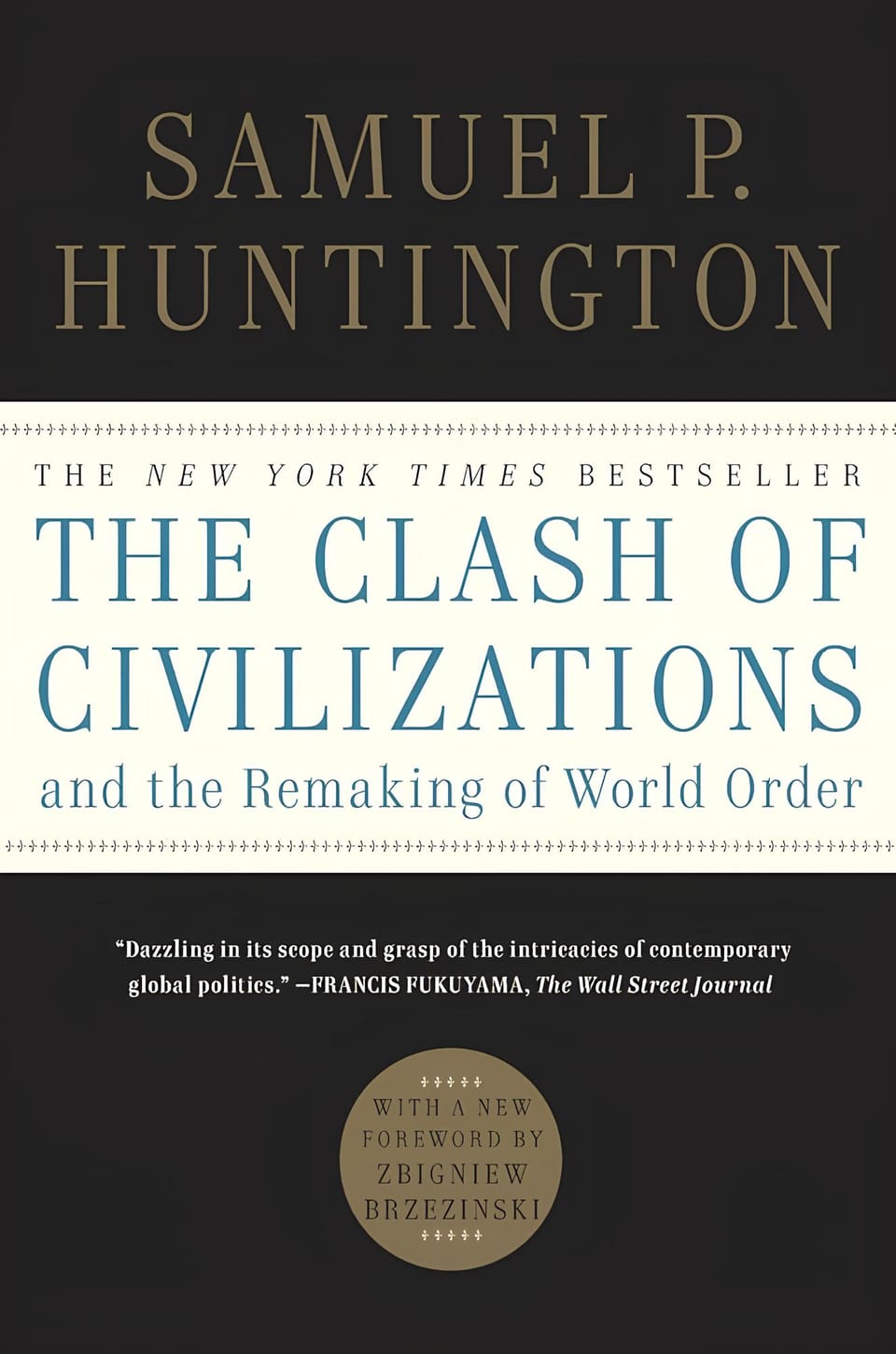The Clash of Civilizations

Why this Book ?
Samuel Huntington is one of the most cited authors of the past thirty years. The events of September 11, 2001, the War on Terror, and ongoing tensions between the United States, Russia, Iran, and China are often seen as validating his "Clash of Civilizations" theory. This theory, first introduced in a 1993 article and later expanded into a 1996 book, created a significant impact. The 1990s were a period of euphoria where the triumphant United States, fresh from the Cold War, believed that the spread of capitalism and individual freedoms would guarantee peace and prosperity for humanity. It was during this period that a key intellectual debate arose: Huntington versus Fukuyama. This intellectual duel came to a dramatic end on September 11, 2001, marking a decisive defeat for Fukuyama.
Many politicians, journalists, and commentators today regard Huntington as a visionary. They argue that he not only foresaw the 9/11 attacks but also anticipated the rise of identity politics in Europe and the United States, the tensions between NATO and Russia in Eastern Europe, and the growing conflicts in the South China Sea.
Today, many politicians, journalists, and commentators view Huntington as a visionary. He is credited with foreseeing not only the 9/11 attacks but also identity politics in Europe and the U.S., the NATO-Russia conflict in Eastern Europe, and tensions in the South China Sea.
However, Huntington's ideas are not universally accepted. Some scholars and critics argue that his theories are overly simplistic, accusing him of promoting a pessimistic and deterministic worldview. For them, the "Clash of Civilizations" serves as a justification for conflicts between the West and Islam and could be used to endorse a more aggressive U.S. foreign policy. Other critics highlight that his theories overlook economic factors, internal tensions within civilizations, and the growing global interdependence.
The problem with seeing Huntington as a prophet is that it risks missing the bigger picture. Huntington was, first and foremost, a brilliant political science professor who aimed to construct a framework for better understanding the contemporary world. In his view, explaining international relations solely through power dynamics between states was outdated. He favored a civilizational approach, based on historical, religious, cultural, and ethnic ties.
This is why, according to Huntington, Russia supported the Serbs and Turkey backed the Bosniaks during the Yugoslav wars. However, like any analytical framework, his has certain imperfections and doesn't account for every event. The question is not whether he was right or wrong, but rather to what extent he was right or wrong.